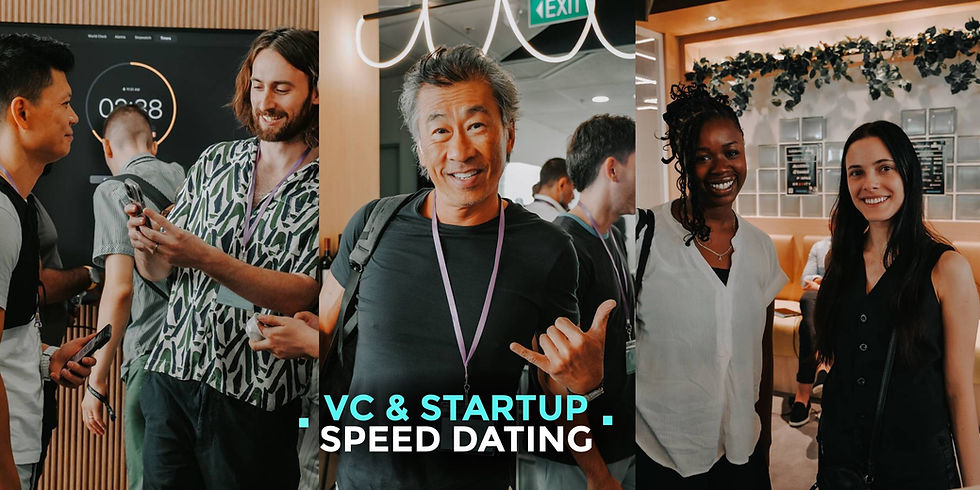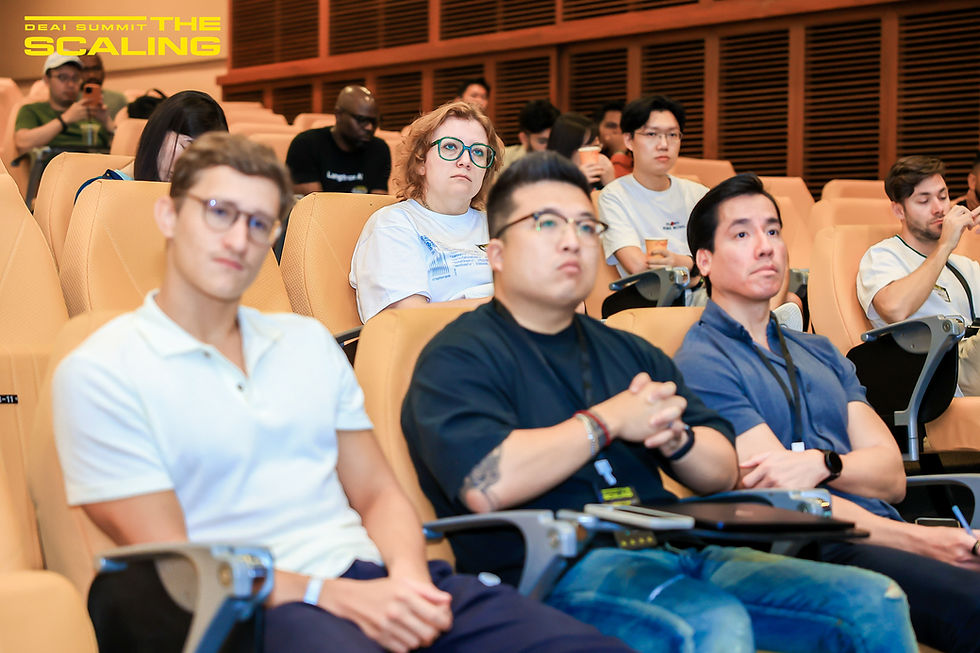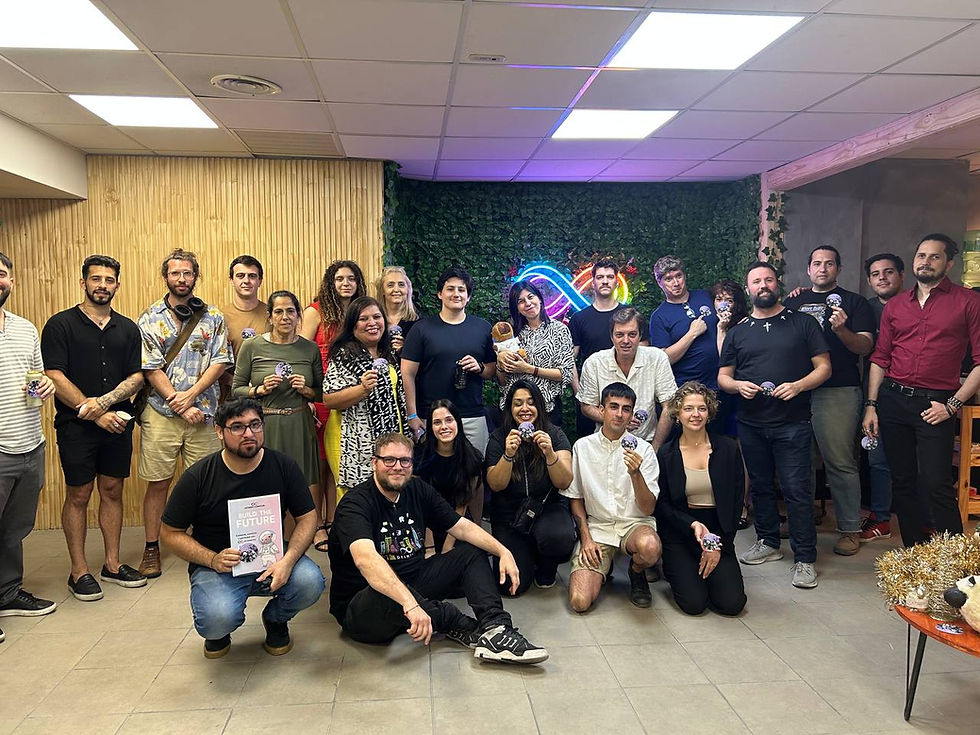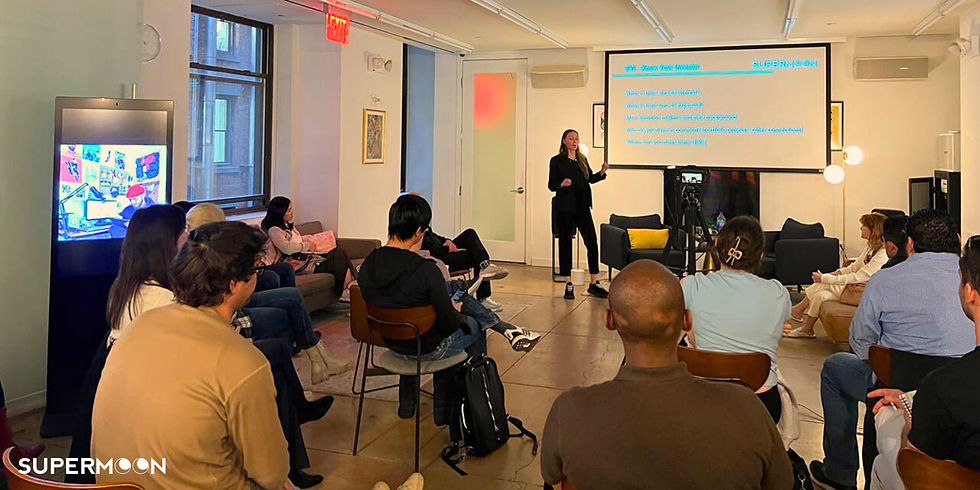
Reflecting on an Incredible 2024
This year was all about connecting founders, builders, and investors through thoughtfully curated events across the globe. From launching our venture arm to organizing large-scale side events at major conferences, we’ve strengthened the Web3 community and driven innovation forward. Here’s a look back at the highlights:
Supermoon Ventures 🚀

✨ In 2024, we proudly announced the launch of Supermoon Ventures, our venture arm dedicated to investing in Web3 founder projects. Backed by a network of 21,000+ founders, builders, and investors, we provide:
🌐Strategic partnerships
📊Media and Event Exposure
🧑🎓Mentorship Support
💡 For LPs, Supermoon Ventures offers access to high-potential deals in crypto, fintech, and AI, amplifying every investment through our robust support system.

ETH Denver (February)

🏯 Supermoon Tower created a vibrant hub for founders, builders, and investors with Startup & Investor Speed Dating, a Founders & Investors Soirée, and the Builder’s Ball. Thanks to Sunrise, Ammocrypt, KXVC, QuillAudits, OORT, and Cointelegraph Accelerator, the Tower became a centerpiece of ETH Denver’s side events.

🏠 Build House, supported by Horizen, Conflux, Near Digital Collective, OORT, QuillAudits, UHack, and Cointelegraph Accelerator, offered a three-day immersive experience for developers. With workshops, panels, and demos, it was a builder-focused initiative that fostered collaboration and innovation.

🛠️ Elena Obukhova, our Co-Founder, delivered her thought-provoking talk, “Disruptors Are Never Welcome,” encouraging founders to challenge norms and embrace the resistance that comes with disrupting entrenched systems.
Consensus 2024 – Mansion on the Moon (April)

🌟 During Consensus 2024 in Texas, we hosted Mansion on the Moon, a private mansion event that brought together over 1,000 Web3 enthusiasts. Supported by OORT, Cointelegraph Accelerator, Sunrise, B612, and Ammocrypt, this event combined vibrant networking with a celebratory atmosphere.
Token 2049 (September)
🚀 During Token 2049 in Singapore, we hosted three impactful events:
🌐 Startup & VC Speed Dating, co-hosted with ABCDE Capital, OpenPad, Caldera, and Tweed, created meaningful opportunities for 50 VCs and 20 curated startups to connect directly.

🌎 Latin America: Web3’s Next Frontier, co-hosted with Aztlan Capital, Cointelegraph Accelerator, Plug and Play, FacilPay, Zoth.io, and more, celebrated LATAM’s thriving Web3 ecosystem through key discussions and networking.

🔗 The Scaling DeAI Summit, co-hosted with 0x499 & NEAR Protocol, showcased cutting-edge projects and AI advancements.
🤝 KOLs Gathering: Singapore Edition, in collaboration with Cointelegraph, brought together top Key Opinion Leaders and content creators to discuss their impact on Web3.

DevCon 2024 (November)
📍 At DevCon 2024 in Bangkok, we partnered with ICP, Peanut Trade, Mind Network, Bitte Protocol, Units, GLIF, DoraHacks, and Cointelegraph Accelerator to host four days of events that addressed scaling, decentralized AI, and advanced blockchain technologies.

🌟 Startup Demo Day with ICP featured startup pitches to VCs, fostering discussions and connections.

ICP Demo Day (Thailand) 🤝 Founder & Investor Speed Dating + Market Scaling Summit provided curated networking opportunities and actionable scaling strategies.
🤖 Investing in AI Summit explored the transformative potential of decentralized AI.
🔐 FHECon delved into Fully Homomorphic Encryption’s role in advancing Web3 security and scalability.

Founders Social Series

🌍 Founders Social brought together founders and investors monthly at Station3 NYC. This year, we expanded internationally with:
✨ Miami (Nov)
🇦🇷 Buenos Aires (Dec) – Co-hosted with ICP Argentina, this milestone event fostered a thriving Web3 and AI community in LATAM, offering attendees a platform to exchange ideas and build critical connections in a vibrant, engaging atmosphere.

Workshops
📚 Throughout the year, we hosted workshops to empower Web3 founders with actionable insights:
💡 How to Raise from VCs?- by our Co-founder Elena Obukhova
📝 Building a PR Strategy for Early-Stage Startups - by Victoria Vaughan (Co-founder of ICL)
💼 Navigating Legality & Tax for Web3 Startups - by lawyer Daniel Weberman
🌐 Growing the Web3 Social Engine - by Rohan Joseph

Soirees, Mixers, and Cocktails

🍸 Alongside our core initiatives, we hosted alternative high-tier networking events:
🌃 Private Rooftop Soiree with Conflux, Datashop, and Sparx Labs.
🥂 Investors Mixer during NY Tech Week, co-hosted with House of Rare.
🏙️ Founders & VC Rooftop Soiree during NY Tech Week with BEVM, OORT, RockTree Capital, Zeebu, and others.
🍷 Investors Reception with PitchBook during Mainnet.
Additional Demo Days and Hackathons
🔍 We celebrated innovation through Demo Days and hackathons:
🔗 The Scaling DeAI Summit, co-hosted with NEAR and 0x499, showcased cutting-edge projects and AI advancements.
💻 DoraHacks Hackathon, supported by DoraHacks, culminated at DevCon, showcasing intelligent agents and decentralized solutions.
2024 was a year of milestones, collaboration, and growth for Supermoon and the Web3 community.
A huge thank you to all our partners, speakers, and attendees who made these events possible.
Happy New Year! 🎆🥂
Here’s to an even more exciting 2025!






